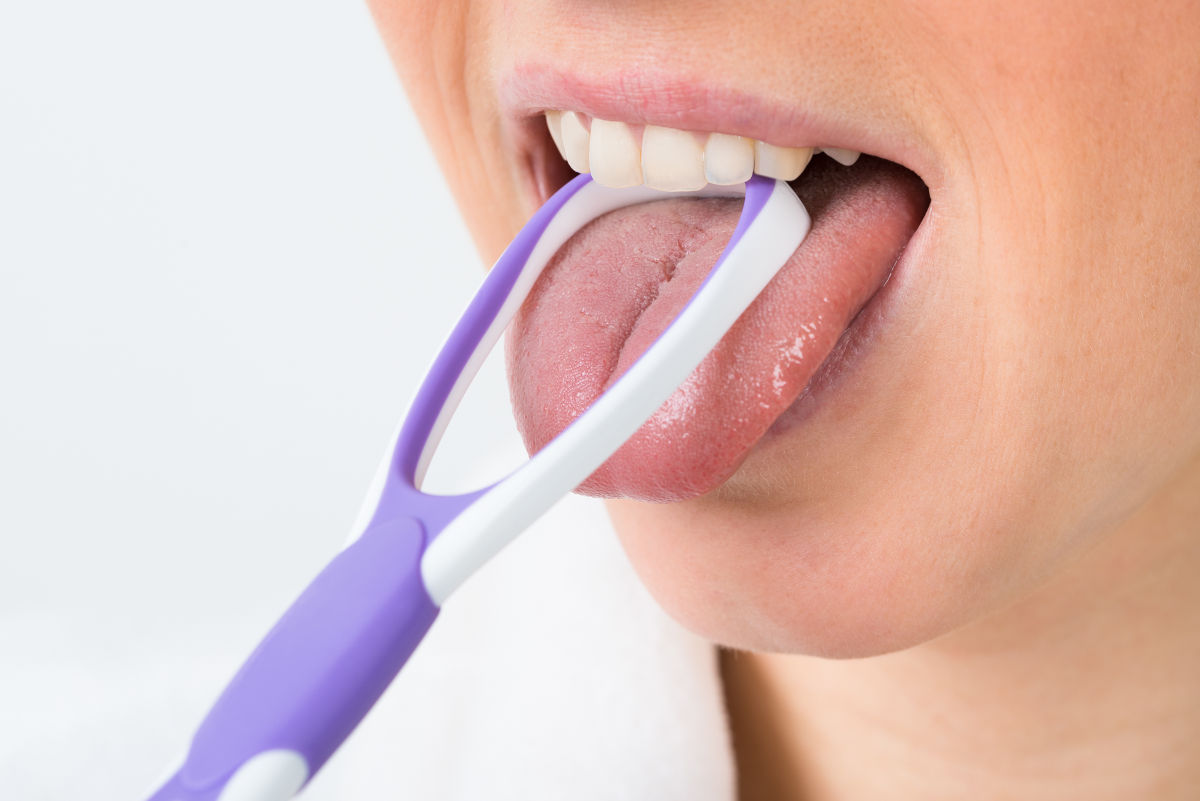Contents

Bad Breath: 5 Effective Solutions to Eliminate It for Good
Bad breath, or halitosis, affects a significant portion of the adult population and can be a source of social embarrassment. While many people reach for mints or gum, these only mask the problem. Here are five effective, evidence-based solutions that can help you eliminate bad breath for good by addressing its root causes.
Understanding the Primary Origins of Bad Breath
While some bad breath is caused by pungent foods like garlic and onions, chronic halitosis is different. Over 90% of chronic bad breath originates in the mouth itself. It's caused by the metabolic activity of bacteria that break down food particles and produce foul-smelling volatile sulfur compounds (VSCs). Key oral health issues that fuel this process include poor oral hygiene, dry mouth, gingivitis, and periodontitis.
When to See a Doctor
If your bad breath persists despite excellent oral hygiene, consult a doctor or dentist, as it can sometimes be a sign of an underlying medical condition like a sinus infection, acid reflux (GERD), or diabetes.
Solution 1: A Comprehensive Oral Hygiene Routine
This is the foundation of fresh breath. Brushing alone is not enough.
- Brush and Floss: Brush your teeth for two minutes, twice a day, and clean between your teeth with floss or an interdental brush at least once a day to remove trapped food and plaque.
- Clean Your Tongue: The tongue's rough surface is a haven for odor-causing bacteria. Use a dedicated tongue scraper or the back of your toothbrush to gently clean your tongue from back to front each day.

Solution 2: Professional Dental Cleanings
If you suffer from persistent bad breath, a professional cleaning is essential. A dental hygienist can remove hardened plaque (tartar) that you cannot remove at home. This eliminates a major reservoir for bacteria and helps treat underlying gum disease, a primary cause of halitosis.
Solution 3: Proper Hydration and Saliva Flow
Saliva is your body's natural defense against bad breath. It washes away food particles and neutralizes acids. When your mouth is dry (xerostomia), bacteria can flourish. To combat this:
- Drink Plenty of Water: Aim for 6-8 glasses of water per day to stay hydrated.
- Chew Sugar-Free Gum or Mints: Chewing stimulates saliva production. Look for products containing xylitol.
Solution 4: Dietary Adjustments
What you eat directly impacts your breath. While avoiding onions and garlic is obvious, also consider limiting sugary foods and drinks that feed bad-breath bacteria. Incorporating crunchy fruits and vegetables like apples and carrots can help mechanically clean your teeth, while yogurt with live probiotics can help promote a healthier balance of bacteria in your mouth.
Solution 5: Natural Remedies
Certain natural remedies can complement your oral hygiene routine:
- Baking Soda Rinse: Baking soda can help neutralize odors. Rinsing with a solution of one teaspoon of baking soda in a cup of warm water can be effective.
- Herbal Rinses: Teas made with parsley, cloves, or fennel seeds have natural antiseptic properties and can help freshen breath after meals.
Conclusion: A Holistic Approach to Fresh Breath
In conclusion, if you suffer from bad breath, rest assured that solutions exist. You can take action yourself with simple methods like improving your oral hygiene, staying hydrated, and making smart dietary choices. However, for persistent issues, it is highly recommended to consult a dental professional to rule out underlying dental problems and get a professional cleaning. A comprehensive approach is the key to eliminating halitosis for good.
FAQ: Your Top Questions About Bad Breath
If bad breath persists despite good brushing, it's likely because you are not cleaning between your teeth with floss or cleaning your tongue. Other common causes include dry mouth, an underlying dental issue like a cavity or gum disease, or a systemic medical condition like acid reflux or a sinus infection.
The vast majority (around 90%) of chronic bad breath is caused by bacteria in the mouth, particularly on the tongue. These bacteria break down food particles and produce foul-smelling volatile sulfur compounds (VSCs). Poor oral hygiene is the most common reason for this bacterial buildup.
Yes, absolutely. Tonsil stones (tonsilloliths) are small, hard formations of bacteria and debris that get trapped in the crevices of the tonsils. They are known to produce a very strong, unpleasant odor and are a common cause of persistent bad breath.
